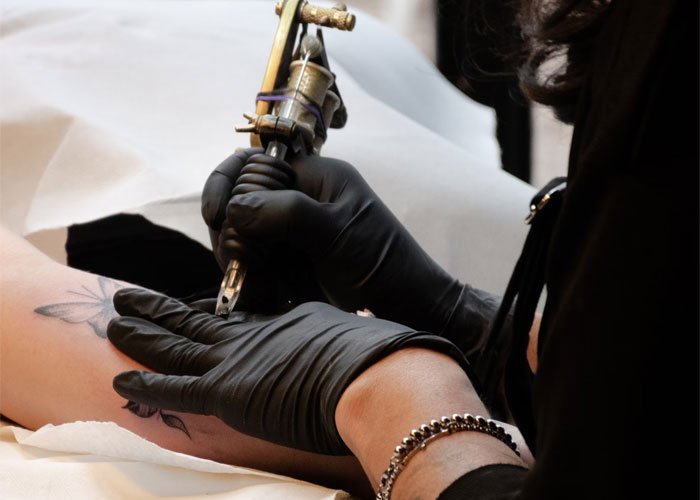Isotretinoin: Uses, Interactions, Mechanism of Action

Introduction
Isotretinoin is a powerful medication primarily used for treating severe acne, particularly nodular acne that has not responded to other therapies. As a retinoid, it is derived from vitamin A and works by addressing various factors that contribute to acne development.
Key features of isotretinoin include:
- Potent Effectiveness: It is often considered the last line of defense for patients suffering from recalcitrant acne.
- Targeted Action: The drug alters skin cell behavior, reduces sebum production, and inhibits the growth of acne-causing bacteria.
This article will delve into the following aspects of isotretinoin:
- Uses: Understanding its primary and off-label applications in dermatology.
- Interactions: Examining potential drug interactions that may affect patient safety during treatment.
- Mechanism of Action: Exploring how isotretinoin works on a cellular level to combat acne effectively.
Readers seeking comprehensive insights into isotretinoin will find valuable information on its benefits and considerations for use.
What is Isotretinoin?
Isotretinoin is a powerful medication classified as a vitamin A derivative. It is primarily used to treat severe recalcitrant nodular acne. Since its FDA approval in 1982, it has been a significant advancement in dermatological care. This retinoid works by addressing various factors contributing to acne, making it different from other treatments.
How Does Isotretinoin Work?
Isotretinoin targets multiple factors that contribute to acne:
- Reducing sebum production: It decreases the amount of oil produced by the sebaceous glands, preventing clogged pores.
- Inhibiting bacterial growth: Isotretinoin reduces the population of Propionibacterium acnes, the bacteria responsible for acne.
- Promoting skin cell turnover: It accelerates the shedding of dead skin cells, preventing them from accumulating and forming comedones.
This comprehensive approach sets isotretinoin apart from other acne treatments, which may only address one or two of these factors.
Comparison with Other Acne Treatments
When comparing isotretinoin with standard acne therapies, its effectiveness stands out:
Traditional Topical Treatments
These often include benzoyl peroxide and topical retinoids. While effective for mild to moderate acne, they may not be enough for severe cases.
Oral Antibiotics
Medications like tetracycline can reduce bacteria and inflammation but do not effectively target sebum production.
Hormonal Therapies
Options such as oral contraceptives can benefit women but may not be suitable for all patients.
In contrast, isotretinoin addresses multiple acne factors at once—reducing oil production, inhibiting bacterial growth, and promoting skin cell turnover. The side effects associated with isotretinoin can be more pronounced than those from other treatments, including dryness and potential mood changes.
Popular Brand Names
Isotretinoin is marketed under several brand names:
- Accutane: Perhaps the most recognized name, synonymous with isotretinoin itself.
- Amnesteem: Another widely used brand that offers similar efficacy.
- Claravis: Provides an alternative formulation with comparable results.
These brands share common formulations and dosages, ensuring that patients receive effective treatment tailored to their needs. Understanding the specifics of each brand can help healthcare providers prescribe the most appropriate option for individual cases.
Uses of Isotretinoin
Isotretinoin is primarily indicated for the treatment of severe recalcitrant nodular acne. This condition is characterized by the presence of large, painful cysts and nodules that do not respond to conventional therapies such as antibiotics or topical treatments. The criteria for prescribing isotretinoin include:
- Diagnosis of severe nodular acne: Defined by the presence of numerous and painful lesions.
- Previous treatment failures: Patients who have not experienced adequate improvement with other acne therapies.
- Impact on quality of life: Consideration of the psychological and social effects caused by visible acne lesions.
The efficacy of isotretinoin in managing severe nodular acne stems from its multifaceted mechanism of action, which directly addresses factors contributing to acne pathogenesis. Treatment typically lasts between 15 to 20 weeks, with dosage adjustments made based on individual patient response.
Off-label Uses of Isotretinoin
In addition to its primary indication, isotretinoin has been explored for several off-label uses in dermatology and other medical fields based on emerging research. These off-label applications include:
- Psoriasis: Some studies suggest that isotretinoin may reduce skin cell turnover, providing benefits for patients with this chronic autoimmune condition.
- Rosacea: Research indicates potential effectiveness in treating inflammatory lesions associated with rosacea, particularly when traditional therapies fall short.
- Skin cancers: Preliminary findings indicate that isotretinoin might play a role in managing certain types of skin cancer due to its ability to induce apoptosis in malignant cells.
- Other dermatological conditions: Its anti-inflammatory properties have led to investigations into its use for conditions like hidradenitis suppurativa and acneiform eruptions.
The exploration of these off-label uses highlights the versatility of isotretinoin beyond standard acne treatment. However, it is essential to approach off-label prescribing cautiously, considering both the potential benefits and risks involved.
Importance of Targeted Care
While isotretinoin represents a powerful option for dermatologists facing challenging cases, understanding its specific applications ensures that patients receive targeted and effective care tailored to their individual needs. Each patient’s journey with isotretinoin should be guided by careful assessment and monitoring throughout the treatment process.
How Isotretinoin Works
Isotretinoin is effective in treating severe acne due to its complex way of working, which primarily involves changing how cells behave, promoting cell specialization, and triggering cell death in oil-producing cells. Understanding these processes helps clarify how isotretinoin works at a cellular level.
Effects on Skin Cells
Isotretinoin significantly changes how skin cells function. It affects the growth and specialization of keratinocytes, which are the main type of cells in the outer layer of the skin. This change leads to:
- Less Oil Production: By inhibiting the activity of sebaceous glands, isotretinoin reduces the amount of oil produced on the skin’s surface. Excess oil is a major factor in acne development because it can clog hair follicles and create an environment conducive to bacterial growth.
- Better Skin Cell Turnover: The medication encourages normal keratinization, preventing pore blockages. This normalization reduces the formation of comedones (clogged hair follicles), which are precursors to more severe acne lesions.
Reducing Inflammation
Isotretinoin also has significant anti-inflammatory effects that contribute to its effectiveness against acne. The mechanisms include:
- Blocking Inflammatory Substances: Isotretinoin lowers levels of pro-inflammatory cytokines and other substances that worsen acne lesions. This reduction helps reduce redness and swelling associated with inflamed pimples.
- Effectiveness Against Acne-causing Bacteria: By decreasing oil production and creating an unfavorable environment for bacteria such as Propionibacterium acnes, isotretinoin reduces bacterial colonization on the skin, further minimizing inflammation.
Triggering Cell Death in Oil Glands
An important aspect of isotretinoin’s action is its ability to induce apoptosis in sebocytes—the cells that make up sebaceous glands. The implications are significant:
- Planned Cell Death: Isotretinoin activates a process where sebocytes undergo planned cell death. This action gradually shrinks sebaceous glands over time, leading to decreased oil production.
- Impact on Comedone Formation: By inducing apoptosis in these cells, isotretinoin minimizes comedone formation. A reduction in blocked follicles directly correlates with fewer acne outbreaks, making this mechanism crucial in achieving clearer skin.
The combined effects of isotretinoin on skin cell behavior, inflammation control, and triggering cell death create a powerful treatment approach against severe nodular acne. Understanding these mechanisms enhances awareness regarding treatment expectations and potential outcomes when using isotretinoin for managing this challenging skin condition.
Interactions with Other Medications
Understanding drug interactions is crucial for patient safety during isotretinoin treatment. Isotretinoin’s powerful effects can be intensified or reduced by other medications, leading to unintended side effects or decreased effectiveness. Being aware of these interactions helps healthcare providers manage treatment plans effectively.
Specific Interactions
Certain medications can either increase the levels of isotretinoin in the blood or decrease its elimination from the body. Here are important drugs to be aware of:
- Abametapir: This topical agent used for treating head lice may significantly increase isotretinoin serum levels when used concurrently. The interaction could lead to enhanced side effects associated with isotretinoin, such as heightened skin dryness and potential liver complications.
- Aceclofenac: A non-steroidal anti-inflammatory drug (NSAID), Aceclofenac can reduce the excretion of isotretinoin from the body. Patients taking both medications may experience elevated isotretinoin levels, which could intensify side effects like mood changes and increased triglycerides.
- Acetaminophen: While commonly used as a pain reliever, acetaminophen should be approached with caution when prescribed alongside isotretinoin. The combination might alter liver function tests, necessitating regular monitoring to prevent hepatotoxicity.
Important Considerations
Patients on isotretinoin should avoid certain other medications that can worsen side effects or create additional health risks:
- Alcohol: Consuming alcohol while on isotretinoin may increase the risk of liver damage and amplify the medication’s side effects, such as dizziness and fatigue.
- Vitamin A supplements: Since isotretinoin is a vitamin A derivative, combining it with additional vitamin A can lead to hypervitaminosis A symptoms, including nausea and skin irritations.
Regular blood tests help monitor liver function and lipid profiles during treatment. Adjustments in medication regimens may be necessary based on lab results or any emerging side effects.
Healthcare providers should ensure patients are fully informed about these interactions. Open communication fosters better adherence to treatment protocols and enhances overall patient safety. Employing a thorough review of a patient’s medication history prior to initiating isotretinoin therapy will further mitigate risks associated with drug interactions.
Side Effects and Risks Associated with Isotretinoin Treatment
Isotretinoin therapy can lead to a range of side effects, some of which are common while others pose serious risks. Understanding these potential side effects is crucial for both patients and healthcare providers.
Common Side Effects
Patients undergoing isotretinoin treatment frequently report:
- Skin Dryness: One of the most prevalent side effects is dryness of the skin, lips, and mucous membranes. This can be uncomfortable and may require regular use of moisturizers or lip balms.
- Eye Irritation: Dry eyes and discomfort can occur, leading to increased sensitivity to contact lenses.
- Nasal Dryness: Patients may experience nosebleeds due to dry nasal passages.
- Psychological Effects: Mood changes, including depression and anxiety, have been observed in some individuals. Monitoring mental health during treatment is essential.
These common side effects often diminish over time as the body adjusts to the medication. However, they significantly impact the quality of life for many users.
Serious Risks
In addition to common side effects, isotretinoin carries serious risks that require immediate attention:
- Stevens-Johnson Syndrome (SJS): This rare but severe skin reaction can occur with isotretinoin use. SJS is characterized by painful red or purple patches on the skin that develop into blisters and eventually cause the top layer of skin to shed. It may also affect mucous membranes, leading to complications such as difficulty swallowing or breathing. Early recognition of symptoms like fever, sore throat, or burning eyes is vital for timely intervention.
- Teratogenic Effects: Isotretinoin is highly teratogenic, meaning it can cause severe birth defects if taken during pregnancy. Female patients must adhere strictly to contraceptive measures before, during, and after treatment to prevent unintentional pregnancies. The iPLEDGE program plays a critical role in ensuring that women understand these risks.
Monitoring for Side Effects
Regular monitoring throughout isotretinoin therapy is necessary to manage side effects effectively. This includes:
- Routine Blood Tests: To assess liver function, lipid levels, and overall health.
- Mental Health Check-ins: Evaluating mood changes or psychological distress.
The importance of clear communication between patients and healthcare providers cannot be overstated. Patients should feel empowered to report any adverse symptoms promptly. This proactive approach aids in managing both common side effects and serious risks associated with isotretinoin treatment effectively.
Special Considerations When Using Isotretinoin
Isotretinoin is a powerful medication that can have serious effects on patient safety, especially when it comes to its potential to cause birth defects. To reduce the risks associated with isotretinoin use among women who can get pregnant, the iPLEDGE program was created.
iPLEDGE Program Requirements
Here are the key requirements of the iPLEDGE program:
- Mandatory Registration: Patients must register with the iPLEDGE program before starting treatment. This program aims to ensure that women understand the risks of pregnancy while taking isotretinoin.
- Pregnancy Testing: Women are required to undergo multiple pregnancy tests before, during, and after treatment. These tests confirm that they are not pregnant before beginning therapy and continue to verify this throughout the course of treatment.
- Contraceptive Measures: Female patients must use two forms of effective contraception during treatment and for at least one month after discontinuation. This requirement is crucial due to the high risk of severe birth defects associated with isotretinoin exposure during pregnancy.
Safety Considerations for Adolescents and Young Adults
When prescribing isotretinoin to teenagers and young adults, extra care is needed:
- Education on Risks: Healthcare providers should educate young patients about the risks of isotretinoin, including potential long-term effects on mood and skin health.
- Monitoring Support: Regular follow-ups are essential to monitor both physical side effects and psychological well-being. Engaging parents or guardians in discussions can enhance understanding and adherence to treatment protocols.
- Adolescent Treatment Guidelines: Following established guidelines for adolescent treatment ensures that healthcare providers consider developmental factors when prescribing isotretinoin. Emphasis on informed consent and shared decision-making promotes a collaborative approach to care.
By addressing these special considerations, healthcare providers can enhance patient safety while effectively managing severe acne through isotretinoin therapy.
Conclusion
Isotretinoin is a powerful option for people dealing with severe nodular acne, especially when other treatments don’t work. It’s important for both healthcare professionals and patients to understand the benefits and risks of isotretinoin. Here are some key points to keep in mind:
- Effectiveness: Isotretinoin has shown great success in reducing acne lesions and preventing future outbreaks.
- Safety Measures: Following the iPLEDGE program is crucial to minimize risks during treatment, especially for women who can become pregnant.
- Monitoring Needs: Regular check-ups on liver function, lipid levels, and other health indicators are necessary for safe usage.
Ongoing research into isotretinoin therapy aims to refine treatment protocols, optimize dosing strategies, and further understand its long-term effects. As new findings emerge, these efforts will enhance the safety and effectiveness of isotretinoin.
For those considering or currently using this medication, maintaining open communication with healthcare providers is vital. This approach fosters informed decisions about treatment options while emphasizing the importance of balancing benefits against potential risks.










